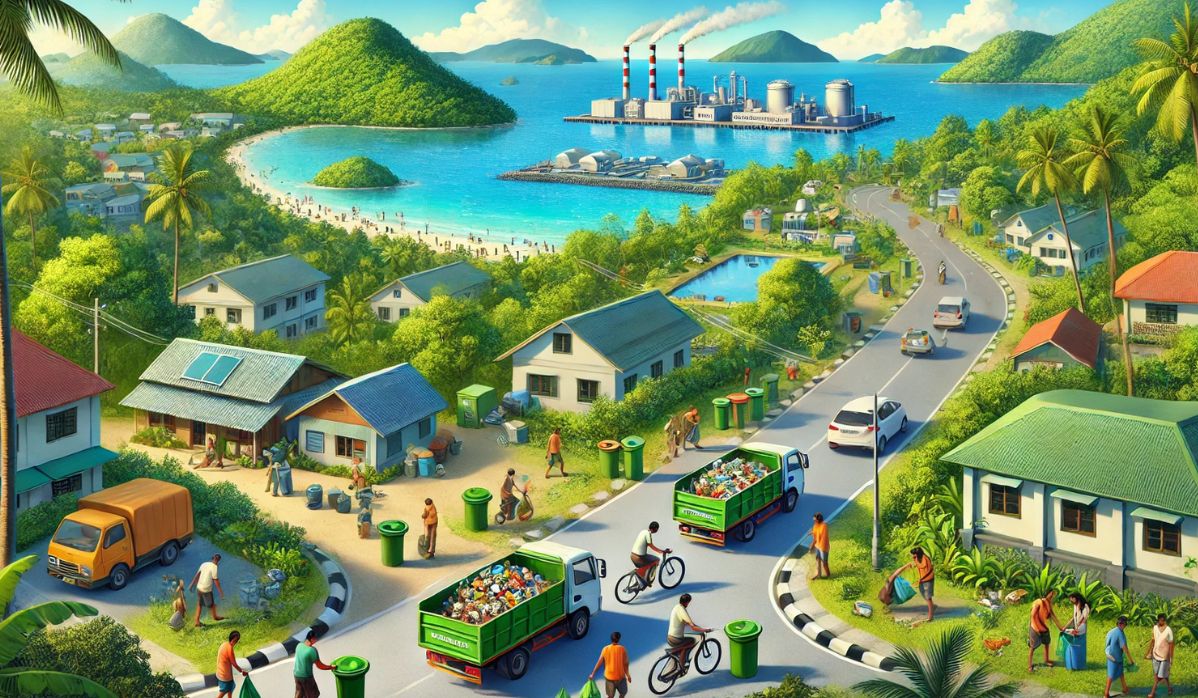Tarun Karthick
Sri Vijaya Puram, 15 January 2025
The Andaman and Nicobar Pollution Control Committee (ANPCC), under the Department of Science and Technology, Andaman and Nicobar Administration, has urged residents and industrial stakeholders to prioritize responsible waste management in accordance with the Municipal Solid Waste Management Rules, 2016. The appeal underscores the importance of preserving the pristine environment of the Andaman and Nicobar Islands and safeguarding public health.
Guidelines for Domestic Waste Management:
Residents have been encouraged to adopt waste segregation at the source, separating biodegradable and non-biodegradable waste before handing it over to municipal authorities for appropriate processing and disposal. Open dumping and burning of waste, which contribute to air, water, and soil pollution, have been strongly discouraged.
Mandates for Industrial Units:
Industries operating in the region have been directed to follow best practices for waste segregation, recycling, and disposal. Key requirements include:
– Compliance with Environmental Regulations: Industrial units must obtain necessary consents from ANPCC for waste generation and treatment.
– Safe Disposal of Hazardous Waste: Hazardous industrial waste should be managed through authorized agencies, and untreated wastewater must not be discharged into the environment.
– Adoption of Cleaner Technologies: Industries are encouraged to reduce waste at the source by integrating eco-friendly practices into their operations.
Tackling Cigarette and Bidi Butt Litter:
Highlighting a growing concern over cigarette and bidi butt litter, the ANPCC has emphasized their proper disposal to mitigate environmental harm caused by non-biodegradable components and toxic chemicals. Local authorities have been urged to include provisions in municipal bye-laws to:
– Prohibit smoking in public areas and workplaces.
– Impose fines for littering cigarette butts.
Commercial establishments with designated smoking zones must provide adequate arrangements for collecting and disposing of cigarette and bidi butts responsibly.
Collective Action for a Sustainable Future:
The ANPCC stressed the critical role of collective action in achieving a clean and sustainable environment. Every individual and organization must adhere to waste management guidelines to preserve the unique biodiversity of the islands. By reducing, reusing, and recycling waste, residents and industries alike can contribute to minimizing their ecological footprint.


In the year 1786, Penang Island, Malaysia was called Pearl of the Orient when the East India Company established a trading post in Georgetown, Penang.
But rapid development and industries brought the pollutants to our rivers and seas. Public health and cleanliness and MUNICIPAL BYLAWS has to revised and strictly enforced for more tourist to patronise.
Andaman Island is less than 1 hour flight time from Penang Island. Port Blair, in Andaman Islands was built later than Georgetown.
So be careful to regulate and allow industries that destroy your pristine islands. Please read PENANG MUNICIPAL BYLAWS to share our experiences in enforcement. Today we are on a CLEANER GREENER PENANG CAMPAIGN.